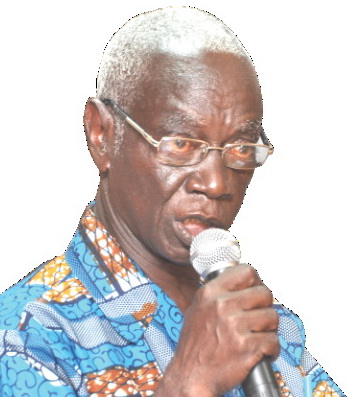Nation on trial
 Save for the statutory public holidays we’ve had so far and the weekends (Friday inclusive) which comes as a matter of course, there seems to be a floating gavel-shaped judicial cloud hovering over the nation, especially from the hours of 10 am to somewhere around 4pm.
Save for the statutory public holidays we’ve had so far and the weekends (Friday inclusive) which comes as a matter of course, there seems to be a floating gavel-shaped judicial cloud hovering over the nation, especially from the hours of 10 am to somewhere around 4pm.
As a result of the presence of such clouds, most homes, I am sure, are flooded by now with many legal terms and expressions with the prominent ones so far being “affidavits” and “amicus curiae”- the latter given the publicity it has received by kind courtesy of the intervention of Lawyer Tony Amekudzi in the ongoing electoral petition hearing before the Supreme Court.
It is easy to think that it is only the Electoral Commission (EC) which is being held to task with respect to the manner in which it conducted the 2012 presidential elections.
After all, it is its pink sheets that are the focus of the dispute. It is the actions and probably inaction of the commission’s staff that is under the spotlight. In sum, the huffs and puffs, the cross-examination after cross-examination are all aimed at testing the very foundations of the electoral process.
But looking more closely, one could tell that in one way or another, the nation is on trial as some of its beliefs and indulgences are being placed on the spotlight.
And sight ought not to be lost on the fact that in the same way as Ghanaians all of a sudden have become coaches during a major football season, they’ve not shied away from the prospect of creating their own bench in the court of public opinion.
As soon as the case was set in motion, the hunger to have a feel of the courtroom experience drew many to their television screens- especially as it was the Supreme Court sitting.
The courtroom, for most times, was filled to capacity and for a moment, there was nothing as equally important as the case before the court. Everything else paled in significance and essence.
I remember a friend within this period complaining helplessly of the low coverage that the news of the death of some small-scale miners in the Eastern Region had received within this period.
He concluded “it is as though there were no issues pending before the petition before the court.”
With respect to the workers and employees who decided to over-indulge in the pleasures of witnessing for the first time in the history of our country, the transmission of a court case on both radio and television, it did not take so much time for a verdict to be reached on their conduct.
Employers, supported ably by some human resource “experts” and some social commentators, literally had to stand on their managerial desks, shout out loud and knock their cymbals against each other just to get the attention of their employees. Their verdict was a total prohibition on their employees not to in anyway indulge in the court proceedings as that was having a toll on their productivity.
As though the absenteeism and absent-mindedness of workers at their workplaces was not enough, the court of public opinion took issue with the manner in which the two general secretaries of the ruling and opposition parties conducted themselves- especially when it came to briefing their supporters on the conduct of court process.
As party scribes with an eye on shoring the support of their grass-roots men and women, it did not come as a surprise that many of the views they expressed on the election petition hearing was nicely skewed without justification.
In seeking to justify his commentary on the proceeding, the National Democratic Congress (NDC) chief scribe, Johnson Asiedu-Nketia, describing himself as “chief supreme court reporter”, stressed that his “duty after the court proceedings is [to]… explain vividly what goes on in the courtroom in the local dialect (Twi) to… supporters who do not have the privilege to watch that on TV or don’t understand the English language.”
Reasoning along similar lines, the New Patriotic Party (NPP) General Secretary, John Owusu-Afriyie, noted in an interview with Peace FM that his supporters were pleased with him “interpreting what happens at the Supreme Court” and reiterated that he was going to go on with it, in spite of efforts to call them to “order”.
As noted earlier, after a long drawn debate, and going back and forth several times, a consensus was somehow arrived at, not to make them the reference point for most of the matters arising out of the Supreme Court proceedings and so has it been.
Certainly the electoral petition shall pass. But it does not mean the nation would cease to be on trial. Its institutions and beliefs would continue to be placed on the spotlight every now and then.
Judgement debt issues continue to eat into the remaining relics of public confidence in this nation. The same can be said for the provision of essential utility services such as water and electricity - the access to which has for long eluded many in this nation.
If all institutions, agencies and even individuals were put to such strict proof and high standard of responsibility as the EC is being held to, there is no doubt that the face of the country would be renewed.
After all, there should be no “too-big-to be- tried” or “too-important-to-be-challenged” persons and issues within our country.
By Samuel Alesu-Dordzi
Email: [email protected]
